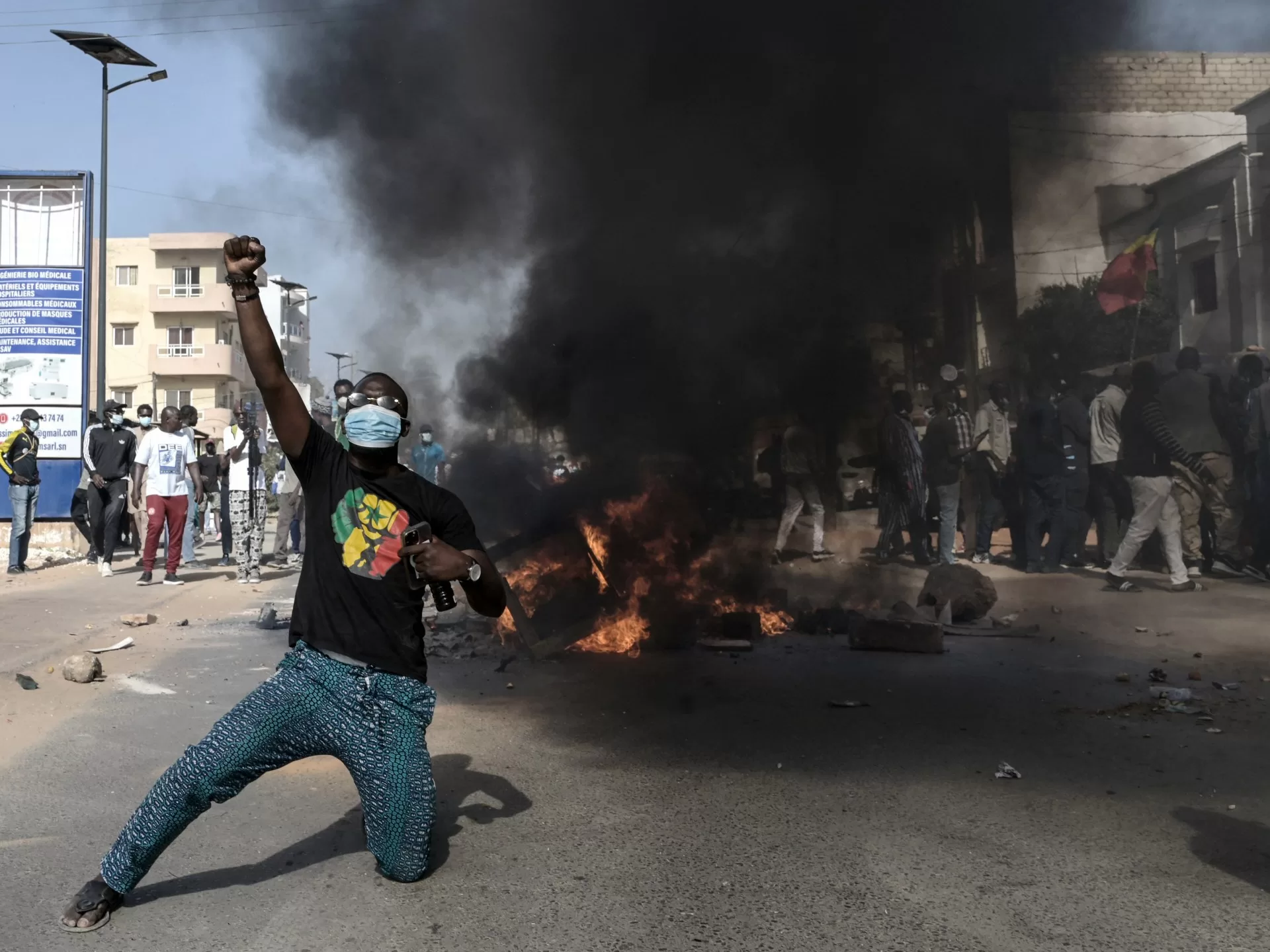The 40-group collective behind the march is protesting against ‘constitutional coup’, as alleged by the opposition.
Elymane Haby Kane, one of the organisers of the march, told AFP news agency he received an official letter from local authorities in the capital, Dakar, that the march was banned as it could seriously hamper traffic.
“We will postpone the march because we want to remain within the law,” said Malick Diop, coordinator of a collective that called the protest. “The march was banned. There’s a problem with the route so we will change this.”
Mobile internet coverage was also restricted, just as it had been on the day of the parliamentary vote.
“Due to the dissemination on social networks of several subversive hate messages that have already provoked violent demonstrations… mobile data is suspended this Tuesday 13 February,” the Ministry of Communication, Telecommunications and Digital Energy said in a statement.
Sall’s decision to push back the February 25 vote plunged Senegal into a crisis that saw clashes between protesters and police in which three people were killed.
The Aar Sunu Election (Let’s Protect Our Election) collective, which includes some 40 civil, religious and professional groups, had called for a rally in Dakar on Tuesday at 15:00 GMT.
The Economic Community of West African States (ECOWAS) has called on the government to restore the original election timetable. On Monday, ECOWAS chair, Nigeria’s President Bola Tinubu, visited Sall to discuss the matter just days after an emergency session of foreign ministers within the bloc.
The chairman of the African Union Commission, Moussa Faki Mahamat, has urged Senegal to resolve its “political dispute through consultation, understanding and dialogue”.
‘Constitutional coup’
Sall said he postponed the election because of a dispute between parliament and the Constitutional Council over potential candidates barred from running and over fears of a return to unrest seen in 2021 and 2023.
Parliament backed the suspension of the election until December 15, but only after security forces stormed the National Assembly and detained some opposition lawmakers.
The vote paved the way for Sall – whose second term was due to expire in April – to remain in office until his successor is installed, probably in 2025.
Senegal’s opposition has decried the move as a “constitutional coup” and suspects it is part of a plan by the presidential camp to extend Sall’s term in office, despite him reiterating that he would not stand again.
Sall, who has been in power since 2012, is now seeking a way out of the turmoil.
Media have reported the possibility of a new dialogue with the opposition, including anti-establishment firebrand opposition leader Ousmane Sonko, who fought the state for more than two years before being imprisoned last year.
Some have suggested the possibility of an amnesty for Sonko, his imprisoned second-in-command Bassirou Diomaye Faye, and for people detained during unrest in 2021 and 2023.
The government has not commented on the reports.
Senegal’s eight public universities began a two-day strike on Monday in protest against the death of a student during Friday’s unrest in the northern city of Saint-Louis, the main higher education union said.
Human Rights Watch meanwhile said at least 271 people were arrested on Friday and Saturday.
Ex-Presidents Abdou Diouf and Abdoulaye Wade – the father of one of the disqualified candidates, Karim Wade – called on Sall to organise the “national dialogue he has announced, without delay”, according to a letter sent to AFP and attributed to the former leaders. They also called on youths to “immediately end the violence”.
